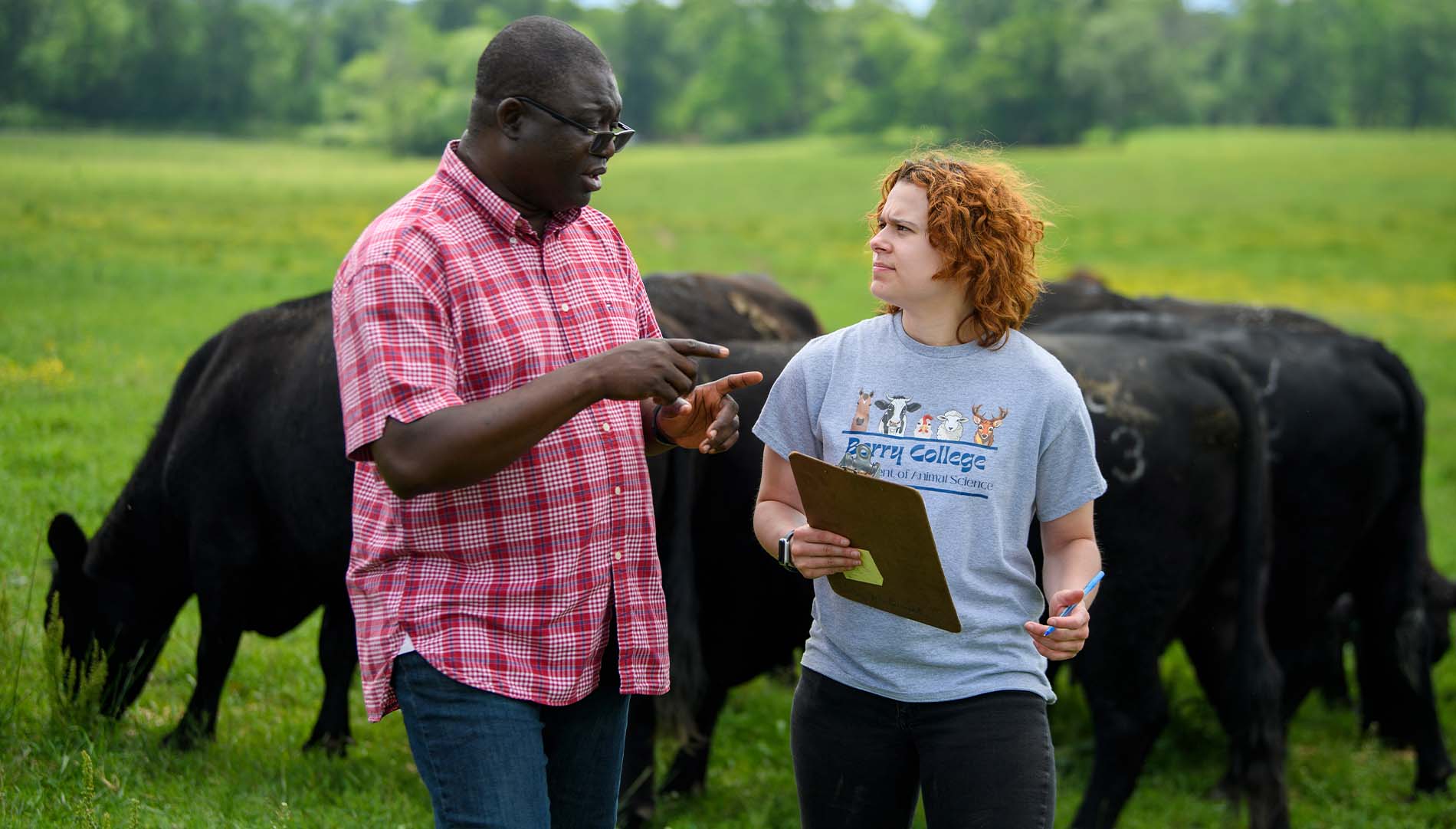When you choose a college, you select far more than a place to study. You are joining a microculture of traditions, values and behavioral norms often reflected in the student body's personality and the college's commitments. When deciding whether a college is right for you, get to know a school’s culture using these steps. Then reflect on whether the community will help you thrive, grow, and feel like you belong.
Explore a College’s History and Mission
College communities are impacted by their size and location, but other characteristics also create a broader campus climate. Understanding a college’s history and mission will give you insight into the school’s values and decision-making process.
For example, Berry College’s story began with Martha Berry, a single woman deeply moved by the lives of children without access to education in surrounding rural communities. With determination and 83 acres of family land, Martha Berry envisioned an education that would disrupt the cycle of generational poverty and include education for women. The residential schools she founded became a gate of opportunity for thousands of students, a testament to her unparalleled entrepreneurial and philanthropic spirit — a rare achievement in an era when many women were denied similar opportunities.
Today, Berry aspires to bridge Martha Berry’s vision with Dr. Martin Luther King Jr.’s dream by working toward a “Good Neighbor” culture. Berry intentionally pursues ways to celebrate the increasing diversity of the campus community. The college also asserts that it values a variety of voices and ideas, making Berry a dynamic place to live and learn.
Whether you plan to attend Berry or not, look for similar historical context or mission statements related to diversity and inclusion. Reread statements about student groups the school hopes to bring to campus and think through how their founding history affects the culture of today’s students.
Look for Values in the Programming and Support
Check out what is happening on campus. Is the school working toward its listed values and vision? A college invested in building community will have a vibrant and welcoming climate where anyone can feel at home. It will also have programs and initiatives connected to the mission and vision that feel open to all.
At Berry College, a new student can locate the Office of Belonging and Community Engagement that serves the campus through the Good Neighbor Center:
- Implementation of Good Neighbor policy & procedure at the institutional level
- Practice of Good Neighbor culture through programming and education
- Mobilization of Good Neighbor culture beyond the college through community engagement

For example, this office supports Solidarity Week, a student-led initiative with special programming that acknowledges, educates and celebrates diversity in the Berry College community. It also fosters a sense of solidarity across the campus by creating a space where each student feels like they belong — something that cannot be established if students are not working toward becoming courageous and loving to those around them.
If you cannot identify places and programming that focus on building compassionate communities at the college you are considering, reach out to an admission counselor and ask about campus resources focused on building community.
Visit and Get a Real Feel for Community
Once you have studied up on a school and the ways it works toward building a cohesive, loving environment, it is time to visit. Meet with current students, faculty and staff. See how it feels. Ask about their experiences and how the college grows a sense of belonging and community. Pay attention to how the college has navigated conflicts. Identify whether it’s an institution that promotes inquiry and encourages clear, caring dialogue about differences. A community that approaches disagreements with patience, humility and generosity of spirit is one where you can grow personally and professionally.
Also, notice the commitments colleges are asking of their students. For example, incoming students at Berry are required to engage in community service during orientation, and they attend workshops on what it means to “Be Berry.” Right off the bat, these experiences and workshops communicate the expectations and values of the college’s culture.
Describing this type of campus, Haley Smith, chief belonging and community engagement officer at Berry College, says, “Campus climate is incredibly important to consider because you are choosing a second home. The best homes are the ones that are kind and honest, welcome their neighbor and allow you to be authentically you. They also listen when there is an issue, work together to find solutions and care for each other even when there are differences. Look not only for the fun things in college and the incredible opportunities but also for how the culture of the campus values treating you and others.”
Final School and Self-Evaluation
Want a few more things to reflect on? Here are some questions to get you thinking as you weigh your college decisions. Remember that no school is perfect. Look for the community that fits your needs and makes you feel loved.
- Where can you see the mission and the vision of the college impacting the culture?
- What are the underlying values of continuing school traditions?
- Do you see communication or decisions made by the student body that make you feel excited or proud to be a part of it?
- What structures are in place to support student belonging? Do they have mentoring practices or orientation courses designed to help students find their place on campus? What about counseling, health services or academic advising?
- How do clubs and activities on campus work? Do they feel inclusive or exclusive?
- What are the spiritual or religious practices of the campus? Does it feel like, regardless of your own beliefs, you will feel cared for and respected?
- Does the campus attitude feel more collaborative or competitive? Which environment is most likely to help you learn and grow?
- Does the campus feel inclusive of ideas and accessible? Why or why not?
- How involved is the college in the local community or surrounding areas?
- How engaged is the alumni base? Do they want to stay connected?
Remember, choosing the right college involves more than evaluating academic programs and majors. Find a community where you can thrive personally and academically. Look for schools that actively promote diversity, inclusion and community engagement through their communication and actions, as these elements can foster a sense of belonging. Visit campuses, talk to current students and observe how the institution handles conflicts and care for students. Ultimately, the best college for you is one where you feel welcomed, supported and inspired to grow.



